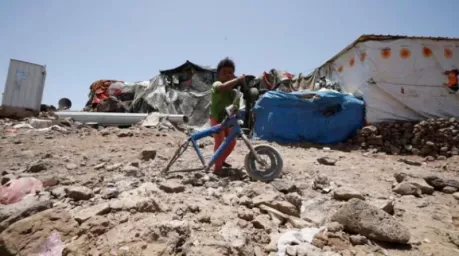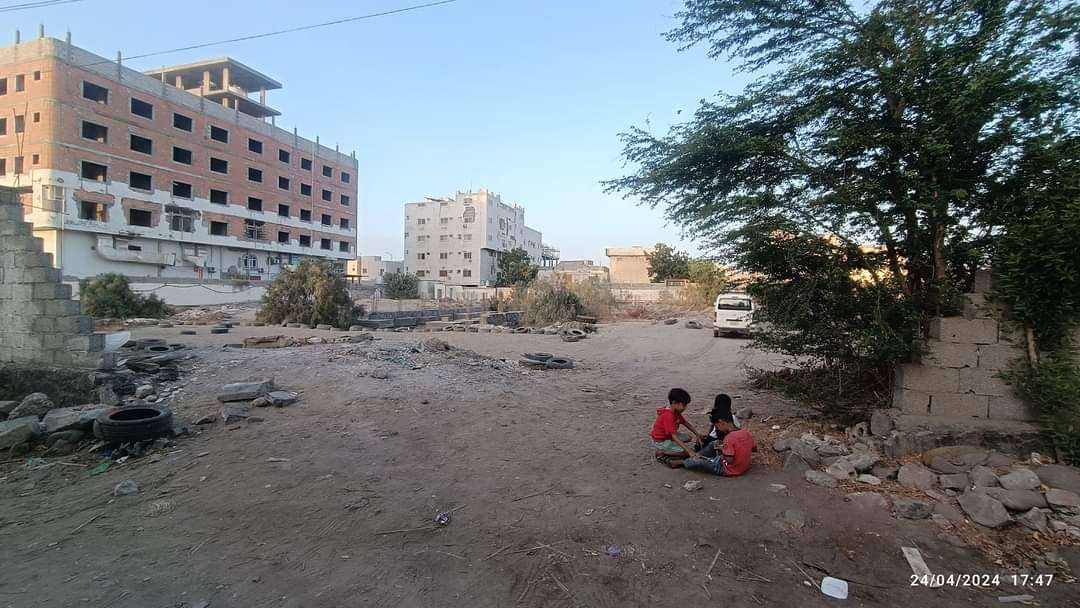|
|
اخبار محلية

اخبار اليمن British report: Poverty in Yemen is a constant source of concern that needs to be addressed (translation)

The British Burgen Project for Economic Studies published a report on the devastating Yemeni crisis and the suffering of the Yemeni people and refugees stranded abroad. The British report says that although Yemen possesses abundant natural resources such as oil, gas and minerals, the country has struggled to grow and achieve economic stability due to the ongoing war, and therefore poverty in the country is a constant source of concern that requires urgently addressing the ongoing humanitarian crisis in Yemen. The Burgen project spoke with Ahmed, a Yemeni refugee living in the United Kingdom, about the reason for his and his family's departure from the areas controlled by the Houthis, saying: "I was born and raised in the capital, Sana'a, and the main reason behind our departure was poverty, poor living and health conditions, non-payment of salaries, and the lack of basic necessities." Life is like electricity, water, unsafe roads between governorates (..) and my family was able to find a better opportunity abroad, but I could not leave with them because I did not get a residence permit due to the strict regulations against Yemeni citizens.” Ahmed explains, "I finally left when I was 18, just a few months before the war started. My family and I were happy and excited to move to a new country with a better life and this is what we dreamed of. But I miss Yemen, especially Sana'a and Aden, the two cities where I spent my life." It has been there for most of my life and I miss my family and friends who still live there." According to United Nations data from 2022, the war has impoverished more than 80% of the population. Ahmed was aware from a young age that more than half of the Yemeni people suffer from poverty, however: "People are very generous and cooperative. I don't remember seeing anyone sleeping in the street, but I saw many cases of begging from women, children, the elderly and men who are not working today." In Yemen, many people without adequate housing live in makeshift shelters made of tin or wood. Ahmed mentions three categories of poor people in Yemen. There are people walking around and begging, and there are people selling things like boxes of tissues, cassettes, sweets and fruit on the streets and at traffic lights. Finally, there are street vendors with carts selling perishables, small items and foodstuffs. The report finds that wealth inequality is very clear in Yemen. While the rich live in large villas, the average person lives in a modest apartment and the poor take refuge in camps. Yemen's poor also tend to visit public hospitals, which are not free but affordable, and although public hospitals are often crowded, staff struggle to attend to the overwhelming needs of patients. On the other hand, the affluent and middle class go to specialized care hospitals that are expensive but not as busy, allowing healthcare personnel to attend to patients quickly and provide high-quality care. Ahmed says: “The best part of growing up in Yemen was being exposed to difficulties from an early age and thus becoming a tough and resilient person (..) I learned many lessons from my time in Yemen and acquired many habits that I still do today like, spending my money wisely, conserving water, not wasting food, and only buying what I needed, and yet this hardship that you refer to was also the worst part of my life.” Since his arrival in the UK, Ahmed has been treated very kindly and generously by immigration officers, the police, hotel staff and charitable organisations. Given that he cannot legally work in the UK, he spends much of his time volunteering at a nearby charity. Not only does Ahmed learn more about the way of life in a new country, but he also gets a chance to interact with the community. Assistance to address the ongoing humanitarian crisis in Yemen comes from within the country and internationally. The United Nations refugee agency works to provide people in Yemen with vital life-saving resources such as food, medicine, shelter and hygiene items. The organization also supports health facilities that assist Yemenis and provides legal advice to Yemeni asylum seekers, among other efforts. In 2023, the United States has pledged nearly $444 million in aid to Yemen, primarily through a USAID program, which has totaled more than $5.4 billion since the start of the conflict in 2014. The report concluded that continued international support will make it possible to comprehensively address the ongoing humanitarian crisis in Yemen while significantly reducing poverty in Yemen and ensuring the safety of the Yemeni people. As the war approaches its tenth anniversary, hope must remain for the survival and sustainability of the Yemeni people.

 فتحي بن لزرق:قمت بشراء هذا الامر بعدن وهذه حقيقة العثور على ديدان في المانجا
فتحي بن لزرق:قمت بشراء هذا الامر بعدن وهذه حقيقة العثور على ديدان في المانجا
 الأهمية والأبعاد.. حلقة نقاشية للمركز الإعلامي للقوات المسلحة الجنوبية.
الأهمية والأبعاد.. حلقة نقاشية للمركز الإعلامي للقوات المسلحة الجنوبية.
 جمع تبرعات لحماية مدرسة من البسط في عدن(صدمة)
جمع تبرعات لحماية مدرسة من البسط في عدن(صدمة)
 الأمانة العامة تدعو الحكومة لتحقيق مطالب أبناء شبوة بإنشاء مصفاة نفطية في المحافظة
الأمانة العامة تدعو الحكومة لتحقيق مطالب أبناء شبوة بإنشاء مصفاة نفطية في المحافظة
 عاجل:زعيم الحوثيين سيقوم بهذا الامر الليلة.
عاجل:زعيم الحوثيين سيقوم بهذا الامر الليلة.